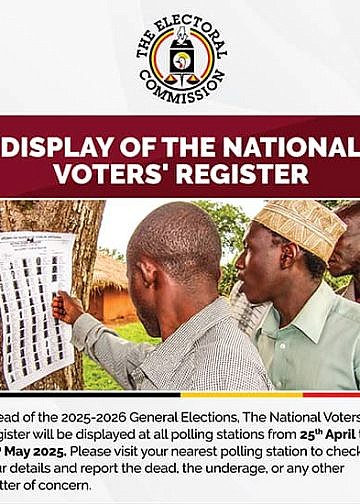By Michael Woira
In the ever-evolving landscape of social media, platforms like TikTok and X (formerly Twitter) have become cultural titans, reshaping how people connect, communicate, and create.
However, amidst the viral trends and endless streams of content, these platforms have devolved into arenas dominated by
noise-making, attention-seeking, and, often, toxic behaviour.
TikTokers and Ugandans on Twitter, while distinct in their methods, seem united by their capacity to generate volumes of unproductive engagement and surprisingly they look at themselves as very important people in this country, celebrities, forgetting that some of us just follow them to laugh at their way of life . What does this say about the culture these platforms are fostering?
TikTok, celebrated for its boundless creativity and entertainment, often feels like a lawless wasteland where anything goes. The platform thrives on parody, with countless users reinterpreting popular songs, each convinced they are the next big sensation. While some performances genuinely entertain, much of the content borders on absurdity, leaving users frustrated rather than fulfilled.
A good example of this confusing creativity is the trend of impractical life hacks. These videos often make simple tasks look more complicated than they need to be, promising to make life easier, but leaving viewers wondering if they actually work. Another popular feature on TikTok is dance trends, where flashy captions try to sound deep or important but just add to the noise, making it harder to find anything truly useful.
Still, there are moments of real value on TikTok. Some creators share useful content like recipes, organisation tips, or genuinely funny videos that brighten people’s days. Sadly, these helpful posts are often hidden under all the noise, making it hard for users to find the good stuff among the chaos.
Young girls and boys are often there attacking each other, slaying and showing their skimpy or half naked videos and boys be there trying so much to attract these young girls with dance moves, sweet talks etc
Twitter, once known as a place for smart discussions and meaningful conversations, has also been taken over by noise-making. Ugandan users on the platform are especially known for their toxic behaviour, with debates often turning into personal fights and angry confrontations. Political discussions, in particular, quickly turn into mockery and unproductive arguments.
The platform’s system makes things worse by promoting content that stirs up conflict, creating a cycle of outrage. Some users post controversial opinions just to provoke others, starting online battles that rarely solve anything. Even efforts aimed at activism or accountability often fall apart, with people turning to insults and personal attacks instead of constructive dialogue.
A striking example of this was a nine-hour Twitter Space hosted by Ugandans earlier this year, which devolved into a public airing of personal scandals. With over 1,000 participants engaging in trivial debates, the event highlighted how the platform has become a stage for public spectacle rather than constructive dialogue.
Both TikTok and Twitter reflect a broader cultural shift where noise often overshadows substance. On TikTok, users prioritise viral trends and exaggerated performances, while Twitter fosters a culture of argumentation and divisiveness. This shared inclination towards unproductive engagement highlights a troubling trend: the pursuit of attention and validation often outweighs the value of meaningful interaction.
A worrying trend on these platforms is the rise of hate speech, racism, and abusive behaviour. Social media, which was meant to bring people together and promote understanding, has instead become a place filled with hostility. On Twitter, for example, Ugandans often take part in harmful conversations, showing the urgent need for rules and responsibility. TikTok also faces similar problems, with its comment sections frequently displaying the same toxic behaviour.
On platforms like Facebook, TikTok, and others, people are often identified by their full names, while some create amusing or unique aliases such as Gundi wa Gundi. Others try to showcase their romantic relationships by using names that include their partners’ usernames. They frequently post texts and pictures to build a positive image, showing themselves enjoying meals like chicken, visiting fancy malls, attending events, and going on outings.
Studies reveal that social media users, particularly on Facebook, TikTok, and sometimes Twitter, tend to share highlights of their achievements, successes, and significant milestones.
However, they rarely post about personal struggles, failures, or hardships and at the end of it all we keep seeing their problems being unleashed by their friends on the same platforms.
Interestingly, I have come across interviews on a YouTube channel called The Truth Uganda, where the host speaks to young women who openly discuss their private lives, including their sexual activities, nightlife in bars, and relationships with older and younger men. It is shocking how some of them seem proud to disclose such details during interviews and on TikTok Live sessions. These sessions often include hurling insults and abuses at others, even people who have never engaged with TikTok.
That said, social media is often described as a “happy world” because, despite these issues, there are significantly more positive messages than negative ones being shared.
This culture of over-sharing, coupled with a fixation on positivity, creates a distorted reality.
Achievements, milestones, and celebrations dominate timelines, while struggles and failures remain hidden. The result is an illusion of perfection that further fuels the pressure to conform and compete in these noisy digital spaces.
Despite their shortcomings, TikTok and Twitter hold immense potential. Platforms like YouTube have shown that social media can evolve, transitioning from frivolity to a space for genuine creativity and learning.
Similarly, TikTok and Twitter can mature, but this requires intentional efforts from both users and platform administrators.
For users, the onus is on approaching social media with responsibility and discernment. Prioritising meaningful content over noise can shift the culture towards one of constructive engagement. For platform administrators, enhancing moderation policies and promoting quality content can help mitigate toxicity and divisiveness.
Social media’s power lies in its ability to connect and inform. Yet, its potential is wasted when platforms become stuck in noise-making and toxicity. TikTokers and Ugandans on Twitter must recognise the role they play in shaping these spaces.
By promoting creativity, respect, and meaningful conversations, social media can shift from a place of conflict and chaos to one of connection and personal growth.
Until then, perhaps the best advice for those overwhelmed by the chaos is simple: step back, take a break, and rediscover the world beyond the screen.
Michael Woira
Patriotic Ugandan








































